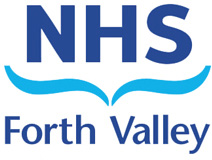Welcome to the Cardiology ward
The cardiology ward has 14 beds, housed in individual side rooms and with capacity for telemetry monitoring across all bed. The ward is on the 1st floor, adjacent to ICU.
Key Contacts
- Senior Charge Nurse – Donna Marshall
- Clinical Lead – Dr Catherine Labinjoh
- Heart failure nurses – Kerrie, Jennifer, Nicola and Laura
Day to Day
- 9.15 am safety huddle – nurse led rapid run-through every patient to identify those who are unstable/requiring urgent review, identify discharges and any immediate jobs.
- 14.00-15.00 evening huddle – quick catch-up to identify outstanding issues
- There is a consultant on call each day – they will assume responsibility for the care of any cardiology patient admitted to the hospital that day (prior to 4pm), who have not been reviewed on admission by any of the other cardiology consultants. Individual consultants will typically carry out 2-4 ward rounds each week – the frequency and timing of these will depend on their other commitments.
Typical Staffing
The cardiology ward is typically staffed by one FY1, one FY2 +/- IMT and one ST who are responsible for day to day patient care. Usually there are at least two of you on the ward – an FY1 and a middle grader.
Responsibilities for each Grade
FY1:
- Ensuring a full clerk in is completed for every patient, including med-rec
- A brief assessment of the patient’s clinical status on arrival to the ward
- Ensuring that planned investigations are carried out, and that the results are acted on accordingly. As such, attendance on ward rounds is advised when possible.
- Complete SCI gateway referrals for angiography at consultant request (paper form can be found in metal drawers beside telemetry, can be filled out and handed to the secretaries)
- Assist nursing staff with phlebotomy and cannulation (the nursing staff are very proactive and helpful with this)
- Complete IDLs – these do not require to be completed prior to patient discharge.
- Sign off daily ECGs before filing in the notes
FY2/IMT/ST:
- Support the FY1 in their day to day workload
- See patients on ward rounds not seen by a consultant that day
- Making sure any patients in CCU beds in critical care have been seen by the cardiology team daily (can be by the consultant on call or the middle grader)
- May be asked by the on-call consultant to support them with their on-call duties, including receiving cardiology referrals
- Clerk in patients transferred back from a tertiary centre
Useful Info
Can they come off telemetry?
This is a question you will often be asked, and the decision should always be made at the morning huddle/ward round and discussed with the patient’s consultant.
Below is a list of general points to help you with the decision making, but a decision should always be made on a case by case basis, and not every patient will fit the following criteria. If you’re ever unsure, ask a senior or a consultant before demonitorising the patient.
- Post MI – 24-48 hours after event if no complications
- Repatriation post cardiac surgery/PCI/ablation – not normally required
- Clinically stable congestive heart failure
When should a patient STAY on telemetry?
- Complete heart block/high grade AV block awaiting a permanent pacemaker
- Patients admitted with VT/VF (without an MI) awaiting an ICD insertion
- Monitoring for suspected arrhythmia (tachy or brady – should be decided on a case by case basis)
- Congestive cardiac failure with signs of haemodynamic or rhythm instability (case by case basis).
- Takotsubo with gross QTc prolongation. (can demonitor if QTc <500)
- Suspected or proven arrhythmia from QTc prolongation – usually continued until ICD in place or QTc <500
- Severe electrolyte disturbance (can demonitor if corrected)
- Administration of drugs likely to cause electrical problems


